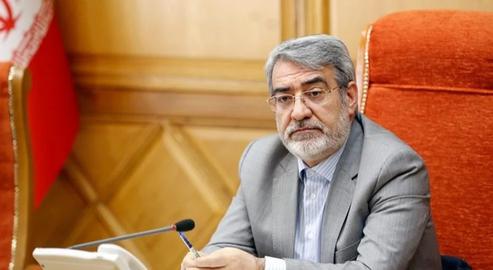Elections for the sixth term of city and village councils in Iran were officially launched by order of Interior Minister Abdolreza Rahmani-Fazli on March 8. Elections for the Islamic councils will be held in 1,372 cities and 40,620 villages and nomadic tribes on June 18, on the same day as the presidential election. On the same day elections for the 11th Majlis and the Assembly of Experts will be held in constituencies where seats remain unfilled.
Here’s what you need to know about the city and village council elections.
How to Register for Council Elections
According to the Interior Ministry’s election headquarters, candidates in elections of the Islamic Council of the city can apply for registration in one of the following four ways:
1- Through the mobile app (downloaded in the Interior Ministry portal) and referring to the governor's office to finalize registration;
2- Through the desktop version (computer), receiving a tracking code and referring to the governor's office to finalize registration;
3- Through government offices, receiving a tracking code and referring to the governor's office to finalize registration;
4- By visiting the city governor's office in person (between 8am and 6pm).
Who can Run in Council Elections?
According to Article 26 of the Law on the Organization, Duties and Elections of Councils, those who meet the following conditions are eligible to run:
A- Citizenship of the Islamic Republic of Iran.
B- At least 25 years old.
C- Belief in and practical commitment to Islam and the absolute authority of the jurist [velayat-e faqih].
D- Expressing allegiance to the Constitution of the Islamic Republic of Iran.
E- To have literacy for village councils of up to 200 households; to have a diploma for village councils of more than 200 households; to have at least a bachelor’s degree or equivalent for a city council of up to 20,000 people; to have at least a postgraduate degree or equivalent for a city council of more than 20,000 people.
F- Having a conscription card or a permanent exemption from military service card for men.
Religious minorities recognized in the Constitution should have belief and practical commitment to the principles of their religion instead of Islam. Council members must reside within their constituency, and any member of the council moving outside the constituency will be disqualified.
Who Cannot Run in Council Elections?
People in the following positions may not run in council elections:
- The president, ministers, advisers and deputies, members of the Assembly of Experts, members of parliament, members of the Guardian Council, the head of the judiciary and his deputies and advisers and the head of the Supreme Court, the attorney general and his deputies and advisers, the head of the Administrative Justice Court, the chairman of the Court of Audit and his deputies, the prosecutor of the Court of Audit, the head of the General Inspectorate and his deputies.
- Employees of the Armed Forces, heads of organizations and political ideological departments of the Armed Forces, the head of Islamic Republic of Iran Broadcasting and his deputies, the secretary of the Cabinet, heads of the three branches of power and heads of government organizations, heads of universities (governmental and non-governmental).
- The president of Islamic Azad University, general directors and CEOs of banks, the head of the Red Crescent Society and his deputies, the head of the Foundation for the Underprivileged and Martyr Veterans, the head of the Housing Foundation, the head of the Imam Relief Committee, heads of organizations and CEOs of state-owned companies (such as telecommunications, tobacco companies, etc.), the head of the literacy movement, the head of the Medical Council of Iran, general managers of government ministries and organizations and other heads, directors and supervisors whose area of responsibility extends to the whole country.
- Governors and provincial officials, mayors, managers of municipal districts and rural areas and affiliated institutions.
Where Can People Vote?
Under council election law Iranians can vote in a town or village where they have lived for at least one year before polling day. There is no such restriction in big cities with populations of more than 100,000. If a person’s family lives in a small town or village but they work in another city, they can vote at their family's place of residence.
The Process of Monitoring Council Elections
The Guardian Council is responsible for overseeing elections for president, the Islamic Consultative Assembly [parliament] and the Assembly of Experts, but the members of parliament oversee council elections. In this election period the 11th Majlis chose five members of the Majority Faction, all of whom are fundamentalists, to serve on the Council Election Monitoring Board. They are Nizamoddin Mousavi, Mustafa Mirsalim, Mohsen Pirhadi, Saleh Jokar and Hamid Reza Kazemi.
The members of the Council Election Monitoring Board have also chosen three members of the Provincial Assembly of Representatives to participate in overseeing the council elections and they appointed a supervisory board for each constituency.
Ratio of Women to Men on City Councils
In the city council elections held in 2017, out of a total of 6,832 seats, 6,397 seats or 94 percent were won by men and 435 seats or 6 percent by women. In those elections men accounted for 93 percent of the candidates and women 7 percent.
Voters in Hamadan province chose the most women among the candidates by handing over 11 percent of city council seats to women, and the people of Qom, without electing a single woman, showed the least support to women in that election.
Related coverage:
What Can Iran Learn from Afghanistan’s Electoral System?
Reformists Turn the Tide in Tehran
visit the accountability section
In this section of Iran Wire, you can contact the officials and launch your campaign for various problems


























comments